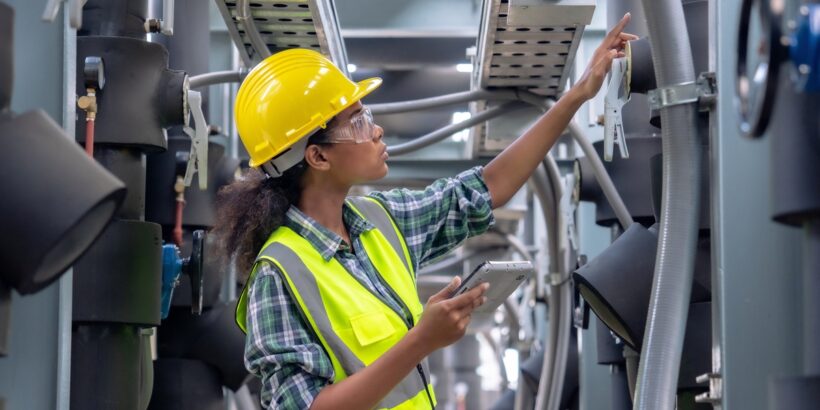Chemical manufacturers face constant pressure to meet regulations, maintain profit margins, and adapt to rapid changes in technology and sustainability standards. Success depends on knowing where to invest time and resources to gain long-term efficiency and reduce risk.
Even small refinements in operations, automation, or infrastructure can reshape how a facility performs over time. The most competitive companies evolve by identifying what to improve and acting without delay.
Optimize Production Through Data and Automation
Real-time production data allows managers to identify inefficiencies and respond quickly to process fluctuations. Facilities that integrate automation reduce human error, stabilize batch consistency, and increase throughput without overextending labor. Operators can shift their focus to quality control and strategic oversight instead of repetitive tasks.
Predictive maintenance tools alert teams to equipment issues before breakdowns halt production. Automated sensors also detect deviations in blend ratios or temperature, helping prevent expensive rework. One way to improve your chemical manufacturing business includes investing in automation that transforms basic functions into intelligent operations.
Strengthen Regulatory and Safety Compliance
Strong compliance protocols protect your workforce. Companies that track safety data sheets digitally, enforce consistent labeling practices, and review procedures regularly avoid regulatory fines and workplace injuries. Proactive training programs give staff the tools to recognize hazards and respond with confidence.
Detailed documentation and digital audit trails reduce confusion and speed up inspections. Chemical manufacturers that build a culture of compliance gain credibility with partners and customers alike. Safety systems help drive accountability from the inside out.
Improve Sustainable Practices and Resource Efficiency
Sustainability presents both a responsibility and an opportunity for long-term growth. More customers now evaluate suppliers based on ESG (environmental, social, and governance) performance, and energy-intensive facilities must adapt to meet demand without sacrificing efficiency. Upgrading systems to recover solvents or recycle water supports both goals.
Using renewable feedstocks and improving waste capture reduces environmental impact while cutting recurring material costs. A forward-looking way to improve your chemical manufacturing business involves implementing changes that lower consumption while supporting cleaner operations.
Environmental performance increasingly influences partnerships, funding, and brand perception. This has led to many sustainable trends in the chemical industry that result in operational improvements.
Upgrade Equipment and Facility Infrastructure
Outdated machinery creates bottlenecks and hidden costs through frequent downtime and poor energy performance. Modernizing your building with corrosion-resistant piping, modular skids, or variable-speed drives immediately impacts productivity and machinery lifespan. The right upgrades simplify workflows while decreasing emergency maintenance.
Facilities that embrace automation within utility systems gain better control over consumption and minimize fluctuations in performance. Physical layout redesigns also improve worker safety and traffic flow between process zones. Infrastructure investments lead to consistent output, fewer errors, and stronger long-term scalability.
Expand Product Offerings or Contract Services
Manufacturers who develop niche or small-batch services position themselves to serve diverse customer needs. Contract manufacturing offers flexibility to clients and helps stabilize revenue in uncertain markets.
Customer feedback often reveals unmet demands worth exploring. Market research can support decisions to produce specialty chemicals or offer toll blending services. Strategic expansion opens doors to new contracts and future growth opportunities.
Growth in chemical manufacturing depends on constant reevaluation of what works, what wastes time, and what supports bigger goals. Business owners that act early and adapt quickly stay ahead of shifting regulations, client expectations, and supply chain pressures.
